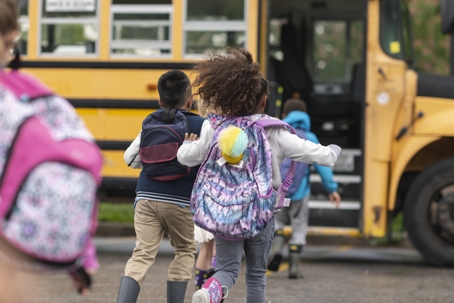Navigating child custody agreements during school field trips can be challenging for co-parents. Effective communication and flexible planning ensure your child enjoys every school opportunity while maintaining stability between two households.
Understanding Custody Agreements and Their Impact on School Activities
Legal Framework of Custody Arrangements
Custody agreements determine how separated parents share child-rearing responsibilities, with each type bringing unique challenges to school activities. Joint legal custody allows both parents equal decision-making roles in education matters, while sole custody streamlines decisions but may complicate non-custodial parent participation. Understanding these frameworks helps parents navigate school events and ensures children don't miss valuable opportunities.
Enumerating Parental Responsibilities
Child custody agreements extend beyond living arrangements to specify which parent handles education-related decisions like permission slips and extracurricular funding. Clear responsibility definitions prevent misunderstandings and ensure both parents contribute positively to their child's school experience. Open discussions about parental roles, guided by the custody agreement, promote harmony in educational matters.
Managing Communication Between Co-Parents
Importance of Open Communication Channels
Effective communication forms the foundation of successful co-parenting, especially when coordinating school activities and managing custody modifications. Maintaining respectful dialogue helps parents address field trip logistics without misunderstandings, creating a cooperative environment that benefits the child. Setting specific discussion times and using agreed-upon communication platforms ensures vital information reaches both parents.
Utilizing Digital Tools for Coordination
Technology offers numerous tools to ease coordination challenges for co-parents managing child custody schedules. Apps like OurFamilyWizard provide platforms for sharing schedules, reminders, and school activity updates, while synced digital calendars serve as centralized locations for trip itineraries. These tools minimize miscommunication risks and enhance collaborative efforts, providing seamless experiences for children.
Creating a Flexible Custody Schedule
Drafting Field Trip-Inclusive Agreements
Incorporating flexibility into custody agreements for unanticipated events like field trips is essential for dynamic school schedules. Parents can draft specific clauses addressing adjustments for school activities, including provisions for split responsibilities or contingency plans when modifications become necessary. Preemptively considering these scenarios positions parents to respond effectively to changing school activities without unnecessary stress.
Considering Special Circumstances and Exceptions
Life's unpredictability requires custody schedules to include adaptability for emergencies and unforeseen changes in school plans. Having outlined procedures for handling exceptions significantly eases tensions when discrepancies arise, such as illness or unexpected work obligations. Clearly defined flexibility in custody arrangements guides immediate actions while maintaining stability in co-parenting relationships.
Involving External Parties for Support
Role of School Administrators and Teachers
Engaging school administrators and teachers ensures both parents receive necessary field trip information, helping mitigate potential custody-driven conflicts. Educational professionals provide impartial documentation to both parties, supporting parents through separate meetings or duplicate communications. This collaborative effort between educators and parents enriches the child's school experience without interruptions or misunderstandings.
Seeking Professional Legal Advice When Needed
When modifying existing custody agreements to accommodate school activities becomes necessary, professional legal advice proves invaluable for navigating complex situations. Family law experts ensure modifications are legally sound and serve the child's best interests, providing guidance tailored to specific family dynamics. This proactive approach through mediation or legal consultation helps mitigate future conflicts while allowing parents to focus on supporting their child's academic journey.
Enhancing the Child's Experience During Field Trips
Prioritizing the Child's Comfort and Preferences
Considering the child's comfort and preferences ensures custody logistics don't overshadow field trip excitement. Parents should involve children in packing discussions and detailed planning, providing them with anticipation for upcoming adventures. These trips represent significant milestones where positive experiences should precede parental logistics.
Packing and Preparation Tips Tailored for Dual-Household Children
Field trips become complicated when children's essentials are distributed between two homes, making preparation crucial for smooth transitions. Creating universal checklists with child input and maintaining pre-packed bags of essentials facilitates easier movement between households. These practical solutions contribute to fostering stability in children's lives amidst shared custody arrangements.
Key Considerations for Field Trip Success:
- Establish clear communication protocols between both parents
- Create shared digital calendars for school events and deadlines
- Develop contingency plans for unexpected custody modifications
- Maintain duplicate emergency contact information with schools
- Prepare universal packing lists accessible from both households
- Consider the child's preferences and comfort throughout planning
McKinney Child Custody Modifications Lawyer
If you're navigating shared custody challenges and need expert guidance on modifications or mediation, Camille Borg Law PLLC is here to help. Our experienced family law team can assist in creating flexible, child-centric agreements that adapt to your family's evolving needs. Contact us at (469) 646-7763 or complete our online contact form to review your custody arrangements and ensure your child's best interests are protected.

